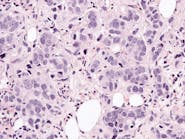Cancer patients with unmet supportive care needs are more likely to experience worse clinical outcomes, including more emergency department (ED) visits and hospitalizations, according to new research from Sylvester Comprehensive Cancer Center at the University of Miami Miller School of Medicine.
The study, published June 21 in JAMA Network Open, also found that Black race, Hispanic ethnicity and factors such as anxiety, depression, pain, poor physical function and low health-related quality-of-life scores were associated with greater number of unmet needs, leading to increased risk for ED visits and hospitalizations.
This retrospective analysis involved 5,236 patients treated at Sylvester’s various ambulatory cancer sites who used its My Wellness Check, an electronic health record-based system, that monitors patients’ emotional, physical and psychosocial needs.
Other key takeaways from this study included:
- 940 or 18% of patients reported one or more unmet supportive care needs, with about a third of them noting two or more unmet needs.
- Almost one quarter of patients with unmet support needs had ED visits, compared with 14% for those without unmet needs.
- For hospitalizations, the differences were 23% and 14%, respectively.
- Support for coping with cancer and financial concerns were the most reported unmet needs, followed by general cancer education and information.
- Diverse representation with Hispanics comprising almost 48% of study patients while other racial groups included Blacks, Caucasians, Asians, American Indians, Native Alaskans, Native Hawaiians and other Pacific Islanders.





